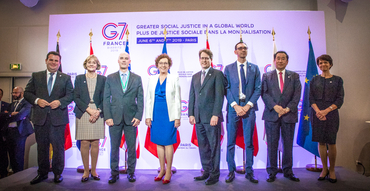G7 Social – The G7 members’ agreement to reduce social inequalities in globalization
The meeting of the G7 Labour Ministers, chaired by Muriel Pénicaud, was held in Paris on 6 and 7 June 2019. During the meeting, the G7 members committed to joint action to reduce social inequalities in globalization. For the first time, this agreement was also accompanied by a tripartite declaration concluded between the G7 members and the international social partners.
The final Communiqué adopted by the G7 members addresses the ambitious objectives set by France and its partners:
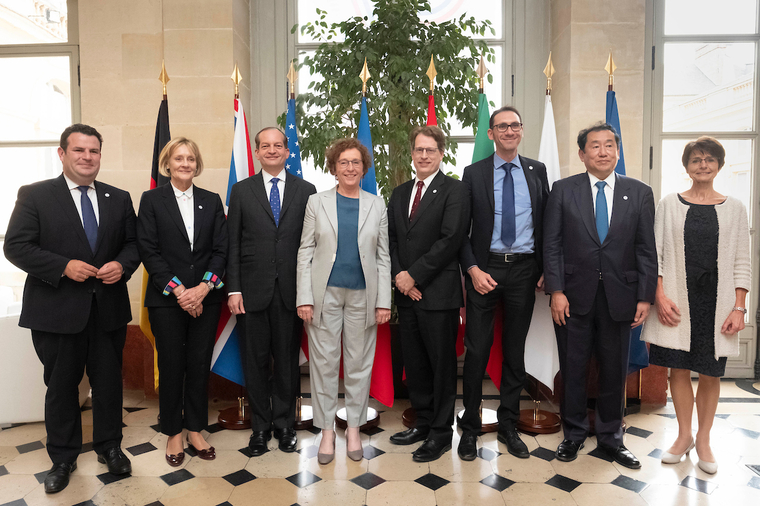
Strengthening Multilateral Coordination to reduce social inequalities
In the Communiqué, the G7 Social members call for regular dialogue and coordination at the multilateral level among relevant international organizations, in order to enhance the coherence of their policies with a view to further integrate international labour standards into their respective policy areas. The aim is to promote new social regulations for a sustainable and inclusive future of work.
Promoting Universal Access to Social Protection in a Changing World of Work
Within their countries, the G7 members committed to adapting their social protection systems to the transformations in the world of work and new forms of work in order to ensure that everyone, regardless of their employment status, has an adequate level of protection.
On a global scale, France and its G7 partners will also support comprehensive partnerships between international organizations, financial institutions, social partners, development agencies and the private sector to develop social protection systems worldwide.
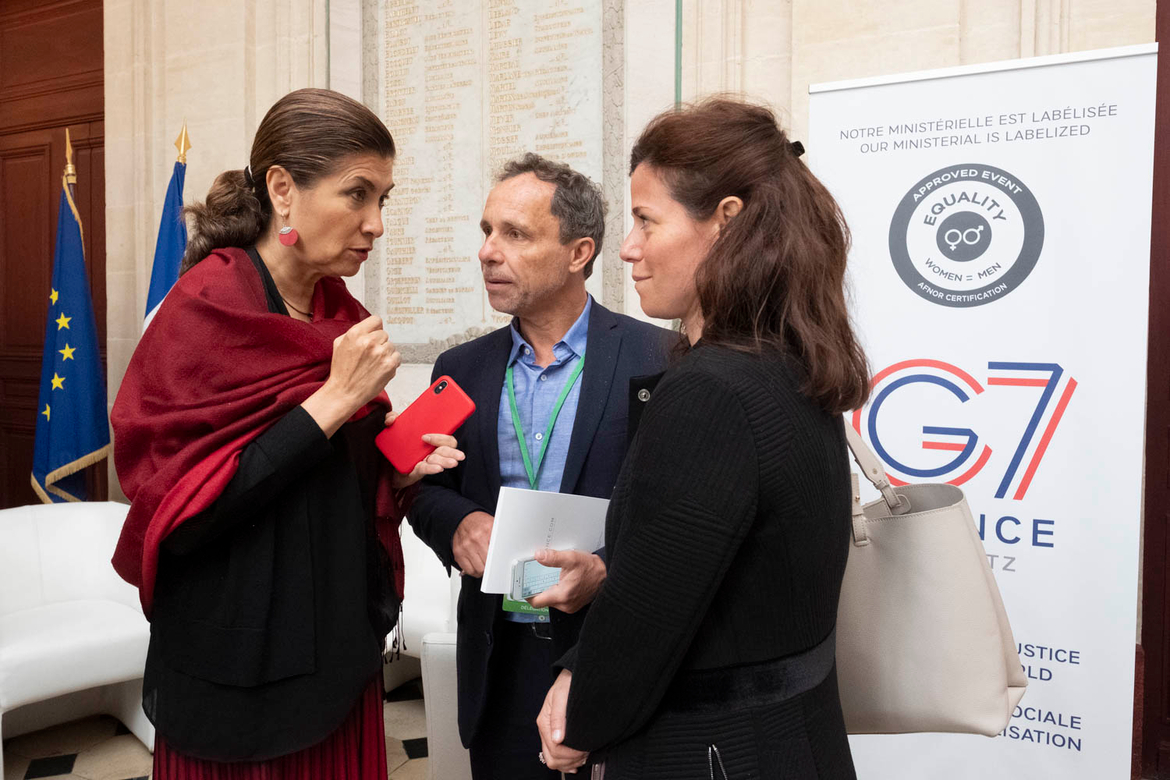

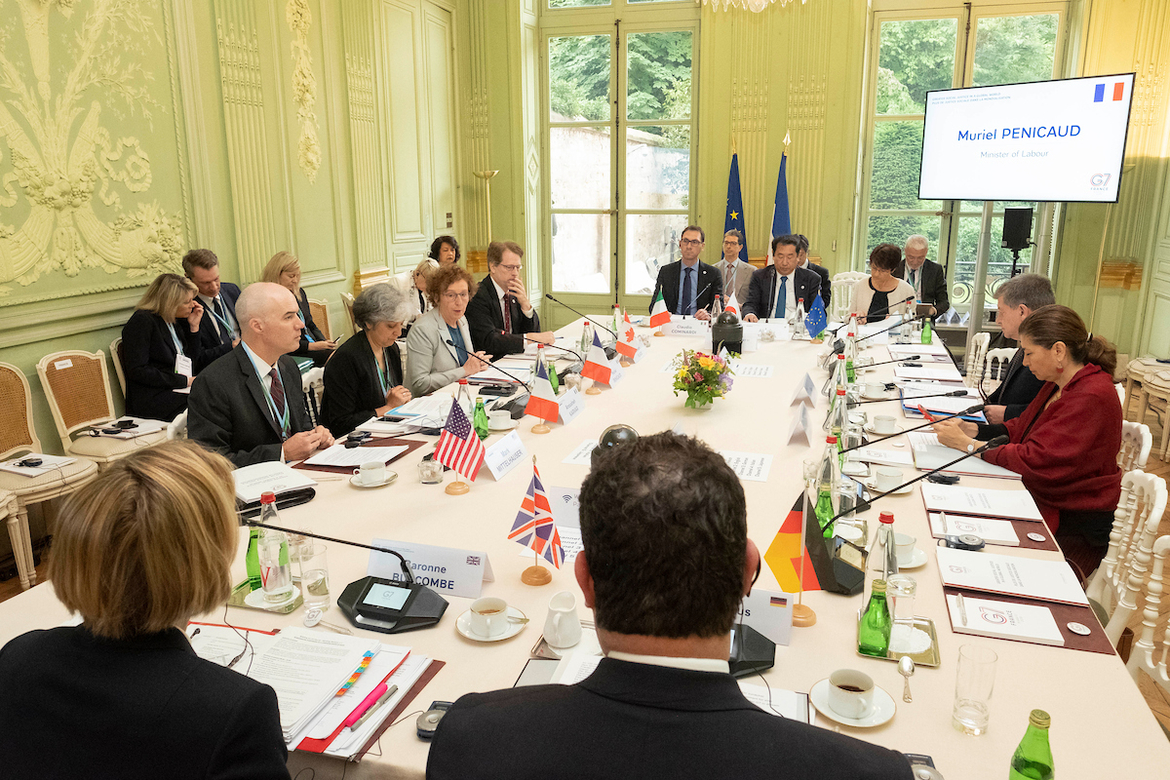
Empowering Individuals for the Future of Work
The G7 members agreed on the importance of ensuring decent working conditions for platform workers, regardless of their status. They will encourage the sharing of national experiences and exploring of possible international responses consistent with fundamental principles and rights at work.
In the face of digital transformations, they also undertook to develop the sharing of experiences to invest significantly in skills and lifelong learning, in order to enable young people and those already in employment to adapt to the new and evolving requirements of the labour market, especially in the digital field.
Ensuring Gender Equality in the World of Work
The G7 members are committed to continuing the efforts made in their countries and to promoting further actions to at last close the gender pay gap, enable a better work-life balance, foster the inclusion of women in the labour market and put an end to violence and harassment in the world of work.
“Through our commitments, we have today laid the foundations for enhanced cooperation to combat social inequalities in globalization [...]. The involvement of all stakeholders will have to continue throughout the year and beyond, in order to build a more sustainable and inclusive future of work.”
Muriel Pénicaud, Minister of Labour
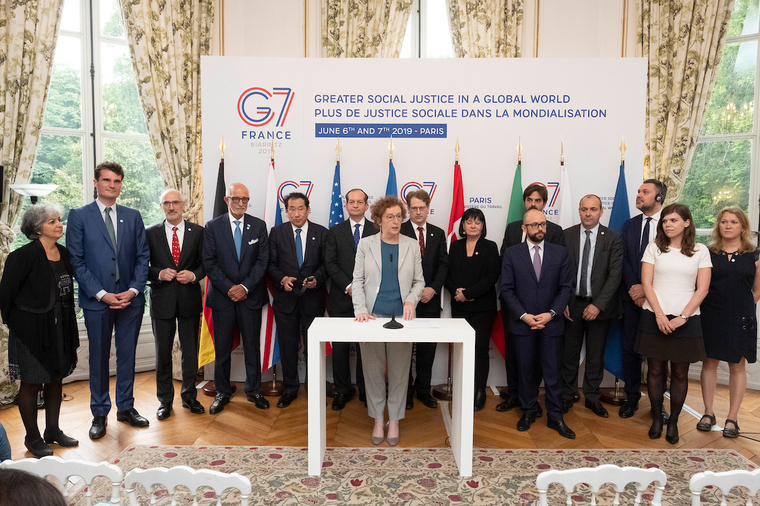
The unprecedented adoption of a tripartite declaration between the G7 members and the international social partners
For the first time at a G7 or G20 meeting, a tripartite declaration between the G7 members and the international labour and employers’ organizations was also adopted in favour of reducing social inequalities.
“This declaration builds on the commitments made by the G7 members in their Communiqué. It sends a strong signal in the context of the centenary of the International Labour Organization.”
Muriel Pénicaud, Minister of Labour
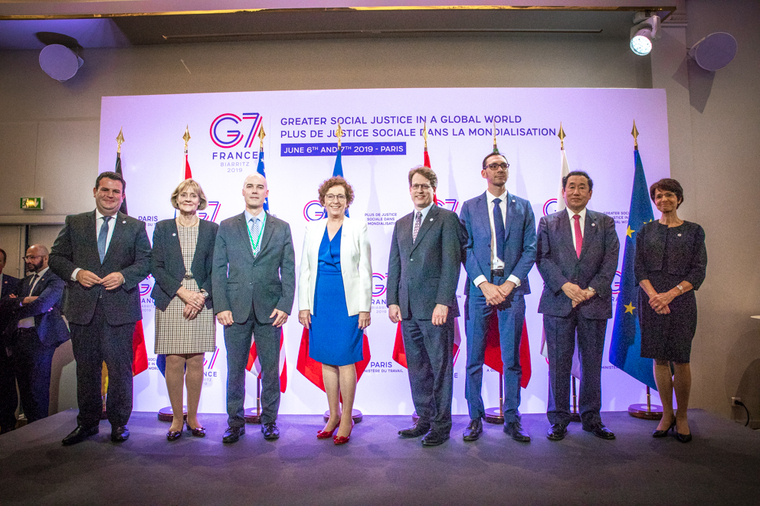
The implementation of tools to share expertise in favour of investment in skills and gender equality
Within the framework of the G7 Social , the G7 members have developed collections of recommendations in two areas:
- Investment in skills to help individuals adapt to the changing world of work;
- Measures supporting occupational gender equality, and in particular to ensure equal pay and to put an end to violence and harassment in the world of work.
These working tools identify effective measures and best practices of G7 members which could be duplicated. They are intended to enable countries and international organizations to draw on these recommendations with a view to implementing proactive policies in this area.
G7 Responses to Tackle the Digital Skills Gap
Next step:
The commitments resulting from this Communiqué will be presented at the G7 Summit in Biarritz, which will be held from 24 to 26 August. They will also be taken into account during other international events in 2019:
- The International Labour Conference, in Geneva from 10 to 21 June, on the occasion of the ILO centenary;
- The United Nations General Assembly, in New York on 18 September;
- The G20 Labour Ministers’ Meeting, in Japan on 1 and 2 September.
